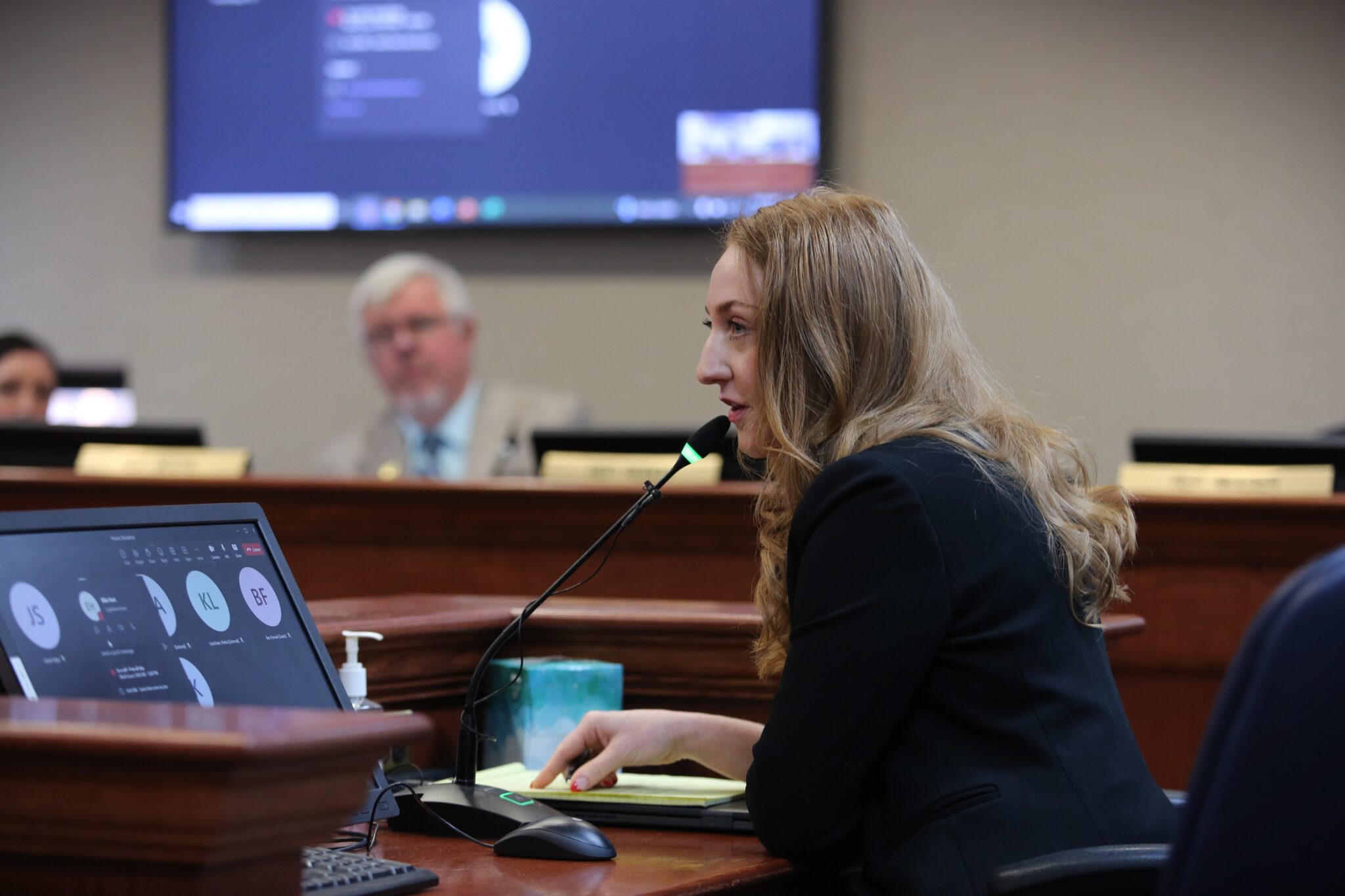
PIERRE (Joshua Haiar/South Dakota Searchlight) — Lawmakers narrowly rejected a bill Monday that would have given more low-income students free school meals.
The state House Education Committee voted 8-7 to defeat the legislation.
“These are South Dakota’s most vulnerable families and kids,” the bill’s prime sponsor, Rep. Kadyn Wittman, D-Sioux Falls, told the committee. She said 7,580 South Dakota children would have been helped by the legislation.
The bill would have prohibited charging students who qualify for federal reduced-price meals. Those students’ parents or guardians make as little as $25,636 to $36,482 annually. Children of parents making less already qualify for free meals.
The bill also would have required school districts to ensure parents or legal guardians of eligible students complete and submit a federal school meal application annually. Proponents said doing so would ensure children eligible for federal programs are benefitting from them.
The state Department of Education would have been responsible for reimbursing school districts for the cost of providing the additional meals. The annual cost would have been about $579,000, according to the state Legislative Research Council.
The bill’s proponents described that as a price worth paying.
“It’s our responsibility as leaders and human beings to ensure that no child in South Dakota has to learn on an empty stomach,” testified Jesse Severson, with Hungry Hearts, a nonprofit helping low-income families.
Gay Anderson, the child nutrition coordinator for the Sioux Falls School District, and Krista Leischner, the student nutrition manager for Rapid City Area Schools, also testified in favor of the bill.
“Food insecurity is a reality in our state,” Leischner told the committee. “Food insecurity is not something students should experience in school walls. While I do not see this bill as ‘the’ answer, I do see this bill as a step in the right direction.”
Governor Kristi Noem’s Bureau of Finance and Management Commissioner Jim Terwilliger testified that “the goals of this bill are well-intentioned” but “there is no free lunch, meaning someone still has to pay.”
Terwilliger said the school lunch programs are “already heavily subsidized by the federal government.” He said the bill takes a burden currently being lifted by nonprofits and philanthropists and puts it on the shoulders of state taxpayers. Across the state, private efforts have helped cover unpaid school lunch bills; for example, 1,800 students’ lunch debts in the Sioux Falls School District were paid off by donations.
Terwilliger said the bill’s proponents would continue to push for more free meals if the bill passed.
“I believe this would just be the first step,” he said. “And more steps would be coming in the future.”
Wittman countered, saying that “if we want South Dakota to pull ahead in terms of test scores, lowering absenteeism, having better health outcomes for our kids, I can’t think of a better investment.”
Rep. Phil Jensen, R-Rapid City, motioned to defeat the bill. He said it’s the responsibility of the church to care for the needy, not the government.

“We are to be the hands and feet of Jesus, and by doing so, we can meet the needs of this effort,” Jensen said. “I think if anybody wanted to donate money, they could donate money to this cause. And as a Republican, I believe in less government and less intrusion in our lives. Nowhere in the constitution or state constitution does it say anything about feeding school children.”
Retired educator Rep. Roger DeGroot, R-Brookings, said his fellow lawmakers on the committee were losing sight of the point of the bill.
“Somehow we got involved in all kinds of different rabbit holes,” he said. “I don’t think it’s the responsibility of somebody running a public school program to run around and work with churches to raise money.”
Rep. Tim Reisch, R-Howard, expressed fiscal concerns.
“I don’t think it’s the state’s obligation to shore up something when the federal government already has a program in place,” he said.
Reisch said the federal debt is a “bigger burden to the youth of this nation than, probably, shortcomings in meal programs.”
Wittman said she does not plan any attempts to revive the bill this legislative session.
